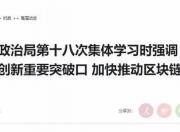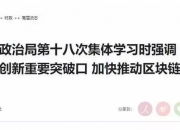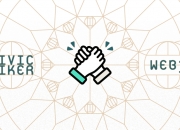过去两周,我一直在研究 Web3 。我注意到对于 Web3(去中心化和基于区块链的 Web)和 Web 3.0 之间的差异似乎存在很多混淆。
I've been studying Web3 for the last two weeks. I noticed a lot of confusion about the differences between Web3 (decentralized and block-based Web) and Web 3.0.
wWeb3 和 Web 3.0有着根本的不同。Web3 是基于区块链的,而 Web 3.0 是语义网(什么是语义网那那是另外一篇文章),这意味着它是一个通用框架,允许用户在不同的企业、应用程序和社区之间复用和共享数据。
wWeb3 and Web3.0 are fundamentally different. Web3 is a block-based chain, while Web3.0 is a semantic web (what semantic web is that is another article), meaning that it is a universal framework that allows users to reuse and share data between enterprises, applications and communities.
为了澄清混淆,这里快速简单地总结了它们在某些方面的不同之处。
In order to clarify the confusion, the differences in some aspects are quickly and simply summarized here.
在深入研究 Web3 和 Web 3.0 之前,让我们快速了解不同的 Web 版本。
Let's get a quick look at the different web versions before we go deep into Web3 and Web 3.0.
Tim Berners-Lee 是第一个在 1989 年定义 Web 第一代的人。它有时被称为 Web 1.0。这都是关于基本连接、超链接和网页设计的。随着网络浏览器的引入,普通用户可以轻松查看网页。NCSA Mosaic 是第一个 Web 浏览器,于 1993 年发布。Marc Andreessen 是 NCSA Mosaic 的共同创建者,该公司后来由 Netscape 共同创立。这家公司是第一个使用互联网的公司。
Tim Berners-Lee was the first person to define the first generation of Web in 1989. It was sometimes called Web 1.0. It was all about basic connectivity, hyperlinks and web design. With the introduction of web browsers, ordinary users could easily view web pages. NCSA Mosaic was the first web browser, published in 1993. Marc Andreasen was a co-founder of NCSA Mosaic, which was later created by Netscape. The company was the first to use the Internet.
Web 1.0 是一开创性的时代,创造了许多第一。自互联网发明以来,多年来发生了许多技术进步。
Web 1.0 is a groundbreaking era, creating many of the first. Many technological advances have taken place over the years since the Internet was invented.
第一代 Web 非常静态,几乎没有视频内容,页面格式与打印页面上使用的格式没有什么不同。随着下一代网络技术 Web 2.0 的推出,这一切在 2004 年发生了变化。
The first generation of Web is very static, with little video content, and the page format is no different from the format used on the print page. This changed in 2004 with the launch of the next generation of Web 2.0 technology.
Web2.0 标志着一个新时代的到来,在这个时代,Web 被视为一种新的媒介。它与包括印刷和视频在内的所有其他媒体截然不同且独立。Web 2.0 为静态网站带来了新的交互形式,只推送信息。博客变得流行起来,社交网络随着 MySpace、Friendster 和 Facebook 的出现而出现。
Web 2.0 marks the dawn of a new era in which Web is seen as a new medium. It is very different and independent from all other media, including print and video. Web 2.0 brings new forms of interaction to static websites, with only information being sent. Blogs become popular and social networks emerge with MySpace, Friendster and Facebook.
从早期到 Web 2.0 时代,许多技术已经改变了 Web。其中之一是 Ajax。Google Maps 率先普及了 Ajax,从根本上改变了 Web 的工作方式。Ajax 允许 Google Maps 放大、滚动和操作地图图像,而不是显示静态的平面地图。
From the early days to the Web 2.0 era, many technologies have changed Web. One of them is Ajax. Google Maps has taken the lead in popularizing Ajax, fundamentally changing how Web works. Ajax allows Google Maps to zoom, scroll and operate map images instead of displaying static flat maps.
Web 2.0 的另一个特点是使用 CSS 或层叠样式表。在互联网早期,开发人员必须使用表格创建网页,这使得他们难以控制布局。CSS 在 2000 年代更加流行和强大,它允许复杂的布局改变 Web 的外观。
Another feature of Web 2.0 is the use of CSS or stubble stylesheets. In the early days of the Internet, developers had to use tables to create web pages, making it difficult for them to control layouts. CSS became more popular and powerful in the 2000s, allowing complex layouts to change the appearance of Web.
Web 3.0 愿景包括一个名为“语义网”的大型组件,这是万维网的发明者 Tim Berners-Lee 提出的。
The Web 3.0 Vision includes a large component called “Semantic Network”, proposed by Tim Berners-Lee, an inventor of the World Wide Web.
Web 3.0 是 Web 从 Web 2.0 演进的下一步。语义网是这一演变的主要组成部分。语义网旨在通过使资源更易于访问来使 Web 更具机器可读性。
Web 3.0 is the next step in the evolution of Web from Web 2.0. Semantic web is the main component of this evolution. Semantic web is designed to make Web more machine readable by making resources more accessible.
语义 Web 解决方案或 Web 3.0 是将所有数据存储在一个地方,即 Solid pod。这允许您作为用户控制谁和哪些应用程序可以访问他们的数据。WebID 也被添加到 pod 中,允许您在线识别自己的身份。WebID 类似于加密钱包,允许我们使用 LinkedIn 或 Facebook 帐户登录应用程序。但是,我们不会失去对数据的控制。
The semantic Web Solution or Web 3.0 is to store all data in one place, the Solid Pod. This allows you to control who and which applications you can access their data as users. WebID has also been added to the Pod, allowing you to identify your identity online. WebID is similar to encrypted wallets, allowing us to use LinkedIn or Facebook account login applications. However, we do not lose control of data.
Web3是一个通用术语,描述了对更好的互联网的愿景。Web3 是一个使用区块链、加密货币和 NFT 以所有权形式向用户返还权力的平台。Web3 不关心创建类似的超链接资源网络,而是解决围绕资产所有权的问题,包括数字和物理。Web 的客户端/服务器模型已通过“http/https”使用,而正在提议的“Web3”使用基于区块链协议的分散模型。
Web3 is a generic term that describes a vision for a better Internet. Web3 is a platform for using block chains, encrypted currency and NFTs to return power to users in the form of ownership. Web3 does not care to create similar hyperlinked resource networks, but rather addresses issues surrounding ownership of assets, including numbers and physics. The Web client/server model has been used by “http/https” and the proposed “Web3” uses decentralized models based on block chain protocols.
Web3 不是互联网的演变,而是替代方案的提议。
Web3 is not an evolution of the Internet, but a proposal for an alternative.
Web3 由以太坊联合创始人 Gavin Wood 于 2014 年创建,其核心目的是对抗亚马逊、谷歌等一些 Web2 巨头的中心化力量。
Web3 was founded in 2014 by Gavin Wood, a co-founder of the Etherms, with the central aim of confronting the centralization of some of the great Web2 powers, such as the Amazon, Google and others.
Web 2.0 的阴暗面是只有少数平台可以访问用户数据,并且可以以不道德或民主的方式对其进行操作。
The dark side of Web 2.0 is that only a few platforms have access to user data and can operate them in an immoral or democratic manner.
在社区驱动的环境中使用区块链技术、去中心化存储和自我主权身份,Web3 将消除 Web 2.0 的问题数据所有权并将其归还给用户。他们可以决定谁可以访问他们的数据和身份。
Using block chain technology, decentralised storage and self-sovereign identity in community-driven environments, Web3 will remove Web 2.0 problem data ownership and return them to users. They can decide who can access their data and identities.
简而言之,它是一个在时间线上记录信息的系统,几乎不可能改变或欺骗。每个事务在计算机网络上同步。
In short, it's a system for recording information on a time line, and it's almost impossible to change or deceive. Every transaction is synchronized on a computer network.
用户将所有数据和身份保存在 TrustWallet、Venly 或 MetaMask 等加密货币钱包中。他们可以与其他区块链应用程序交互并决定谁可以看到他们的数据。加密钱包登录很像 Facebook 帐户,不同之处在于您可以完全控制您的所有数据。
Users store all data and identities in encrypted currency wallets such as Trust Wallet, Venly, or MetaMask. They can interact with other block chain applications and decide who can see their data. Encrypted wallet login is similar to Facebook accounts, and the difference is that you have complete control over all your data.
Web3 允许您以独特的方式控制您的数字资产。例如,假设您正在玩 Web 2.0 视频游戏。您的帐户与任何游戏内购买相关联,如果游戏创建者删除您的帐户,这些物品将会丢失。如果您退出游戏,您也将失去在游戏内物品上投入的所有价值。
Web3 allows you to control your digital assets in a unique way. For example, if you are playing a Web 2.0 video game, your account is linked to any purchase in a game, and if the game creator deletes your account, these items will be lost. If you exit the game, you will also lose all the value you put into the items in the game.
Web3 允许通过不可替代的代币直接拥有所有权,任何人都不能转让您的所有权,即使是游戏创建者。如果您退出游戏,您还可以在公开市场上出售或交易游戏内物品以收回其价值。
Web3 allows you to have title directly through an irreplaceable token, and no one can transfer your ownership, even if you are the creator of the game.
Web3 允许您拥有自己的数据,也可以成为使用代币拥有平台的集体的一部分。这些代币充当公司的股份,DAO 允许您协调分散的所有权并就平台的未来做出决策。
Web3 allows you to have your own data or to become part of the group that owns the platform using a token.
DAO 可以被描述为智能合约,它们在资源池(代币)上以分散的方式达成一致并自动进行决策。该代码通过允许用户对资源的使用方式进行投票来执行投票结果。
DAO can be described as a smart contract, where they agree on the resource pool (demonstrate) in a decentralized manner and decide automatically. The code implements the vote by allowing users to vote on the use of the resource.
许多Web3 社区被用户称为 DAO。通过代码和去中心化,每个社区都有不同程度的自动化。
Many Web3 communities are called DAOs. Each community has varying degrees of automation through code and decentralisation.
您通常会在您使用的每个平台上创建一个帐户。您可能拥有 Twitter、YouTube 和 Reddit 帐户。您可以更改您的个人资料图片或显示名称,这必须在所有帐户中完成。尽管在某些情况下可以使用社交登录,但审查制度会带来问题。这些平台可以迅速将您锁定在您的整个在线存在之外。您需要向他们提供您的个人信息才能创建帐户。
You usually create an account on each of the platforms you use. You may have Twitter, YouTube, and Reddit accounts. You can change your personal data pictures or display names, which must be done in all accounts. While social login may be used in some cases, the review system will cause problems. These platforms can quickly lock you out of your entire online existence.
Web3 允许您通过以太坊地址或 ENS 配置文件控制您的数字身份,从而解决了这些问题。使用以太坊地址提供跨安全、抗审查和匿名平台的单一登录。
Web3 allows you to resolve these problems by controlling your digital identity with a Taiwan address or an ENS configuration file.
Web 2.0 的支付基础设施依赖于银行和支付处理公司,不包括没有银行账户或居住在错误国家的人。Web3 使用 ETH 等代币直接从浏览器进行转账,不需要任何受信任的第三方。
Web 2.0 The payment infrastructure depends on banks and payment processing companies, and does not include persons who do not have bank accounts or live in the wrong country.
Web3(去中心化 Web)和 Web 3.0(语义 Web)希望为当前的 Web 提供替代 Web,他们认为当前 Web 已损坏。
Web3 (decentralized Web) and Web 3.0 (semantic Web) want to provide a replacement for the current Web, which they believe is damaged.
他们有不同的关注点。语义 Web 或 Web 3.0 通过重用数据并将其跨网站链接来关注效率和智能。Web3 或去中心化网络通过让人们控制身份和数据来关注安全性和授权。
They have different concerns. Semantic Web or Web 3.0 focuses on efficiency and intelligence by reusing data and linking them across websites. Web3 or decentralised networks focus on security and empowerment by allowing people to control identities and data.
同样重要的是要注意他们使用不同的技术来实现他们的目标。Web3 建立在区块链之上,Web 3.0 使用 RDF 和 SPARQL 等数据交换技术。猫头鹰和 SKOS。这种差异具有重要的后果,即Web3(区块链)数据难以修改(分布在许多地方),而 Web3.0 数据易于修改。
It is also important to note that they use different technologies to achieve their goals. Web3 is built on block chains, and Web 3.0 uses data exchange technologies such as RDF and SPARQL. Owl and SKOS. The difference has important consequences, namely, that Web3 (block chains) data are difficult to modify (in many places), while Web3.0 data are easy to modify.
尽管他们的关注点不同,但他们的方法是相似的。两者都希望用户数据保持在用户的控制和所有权之下。这些数据存储在语义 Web 的 Solid pod 和 Web3 的加密钱包中。不同之处在于数据集中存储在一个实体 pod 中。相反,加密钱包持有分散在区块链上的资产的密钥,而传统钱包则没有。
Although their concerns differ, their methods are similar. Both want user data to remain under user control and ownership. The data are stored in the cryptographic wallets of Solid Pod and Web3. The difference is that the data are stored centrally in one entity Pod. On the contrary, the encrypted wallet holds keys to assets scattered over the block chain, while the traditional wallets are not.
两者的核心区别在于Web3具有去中心化结构,而Web3.0具有语义或链接结构。
The core difference between the two is that Web3 has a decentralised structure while Web3.0 has a semantic or linked structure.
?
这最终真的重要吗?说实话,不多。两者都想建立一个更好的互联网。但是,更重要的是,两者仍在开发中。新互联网的最终版本很有可能将更加互联、去中心化、安全和以用户为中心,将这些技术和其他方法结合起来(在此处插入任何流行词:元宇宙或量子计算、人工智能等) .)。
In the end, is this really important? To be honest, not much. Both want to build a better Internet. But, more importantly, both are still being developed. The final version of the new Internet is likely to be more interconnected, decentralized, secure and user-centred, combining these technologies with other methods (insert any popular word here: metacosystem or quantum computing, artificial intelligence, etc.).
Web3 的构建阶段是真正的挑战。一方面,这非常令人兴奋,但也非常混乱和混乱。因此,即使在 Wikipedia 上也存在关于Web3 与 Web3.0的混淆。
The construction phase of Web3 is a real challenge. On the one hand, it's very exciting, but it's also very confusing and confusing. So, even on Wikipedia, there is a confusion between Web3 and Web3.0.
注册有任何问题请添加 微信:MVIP619 拉你进入群

打开微信扫一扫
添加客服
进入交流群




















发表评论